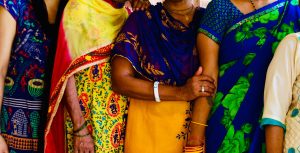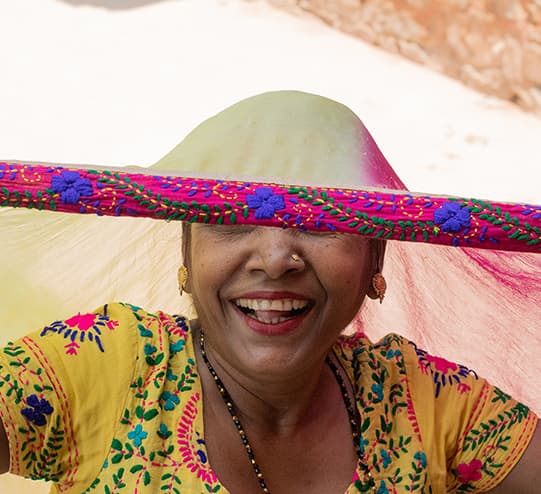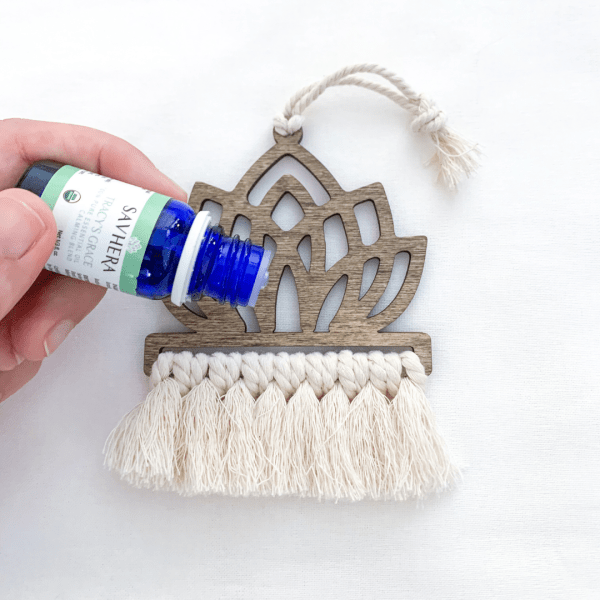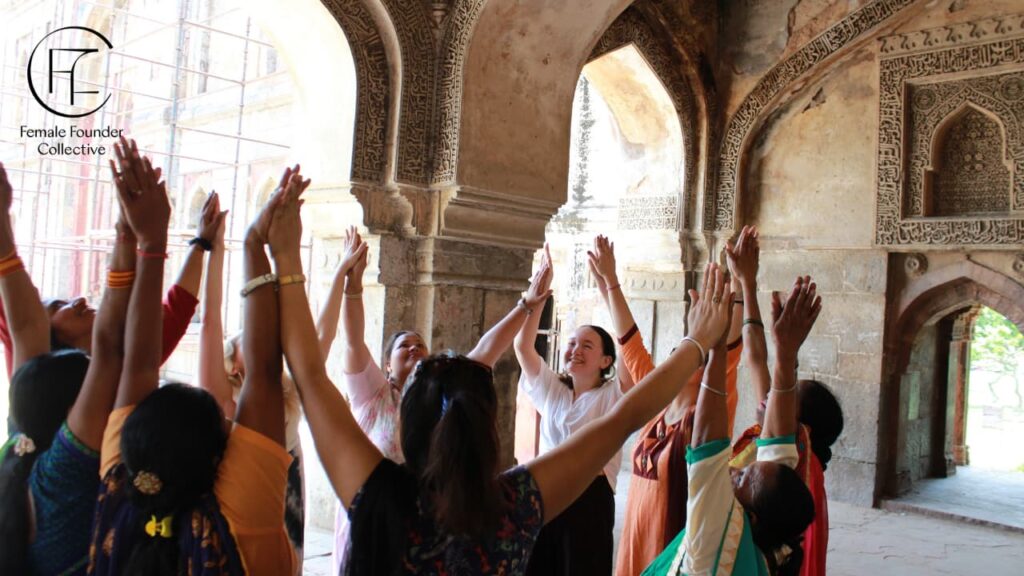Let’s start with the basics…What are essential oils?
” Essential oils are the essence of a plant. You grow a plant, fruit, or vegetable, and you can extract various things from it. You can extract the water or oil from it. It is the very highly concentrated essences of some fruit or herbs or plant that you receive. “
Savhera has had a fascinating history from its inception. What started as a question challenging Dr. Bouche became a personal mission to make a difference.
“I am a professor of political science at TCU, and I have been doing research on the issue of human trafficking for over a decade. I was leading a study abroad trip in India on transnational human trafficking. We were sitting in the red-light district at a medical clinic one year when a woman that happened to be there said to me, “why should I tell you anything about myself? Why should I share my story with you at all? You are no different than those that come here and exploit me for my body. You’re just exploiting my story.” That really resonated with me. I asked her, “what do you need?” She said, “I need dignified employment to get out of this dirty business.” And I told her I would help her do that. Now, when I made that commitment to her, my thought was that I would connect her with a social enterprise that already existed in Delhi that was working with women that wanted to come out of the brothels and wanted to leave prostitution. And I searched and found nothing for her. It is interesting because as with most startups, you identify a void in the market, and you start a business to fill that void.”

This is how essential oils and employment for trafficked victims intersected. Dr. Bouche saw a problem that could be solved by creating a business as a solution for exploited survivors in India.
“Our business started because we identified a social need, a social void, and that social void is that there are significant barriers to dignified employment for sex trafficking survivors, not just in India, but also in the United States. The question became, “if we’re going to start a business too, and we think there’s a market solution to this social problem, what is that market solution going to be?” We had to do a lot of research around what kind of business do we want to be? What kind of business do we want to start? And we landed on essential oils and aroma therapy.”
Through market research, Bouche found that the market for the growing essential oil industry also shared social justice values. This led to becoming a socially conscious company that cares about their customers, their employees, and is intentional about pursuing best practices.
“When we were thinking about the kind of company we wanted to be, we are fundamentally all about holistic wellness and wellbeing. Wouldn’t it be great if our product category also contributed to that, that not only are we about holistic wellness and wellbeing for our employees, but also for our customers, for the people that are going to be benefiting from our product as well? We also did a lot of market research and we found that the aroma therapy industry was about a $1 billion industry. It is anticipated to grow significantly over the next 10 years. It is an industry that lacks what we would consider a socially conscious brand option at a time when consumers are increasingly looking for ways to align their buying habits with their values.”

“We felt like here is a space where people that are interested in holistic wellness tend to also be interested in social justice and have some level of social consciousness. And yet there is not a brand on the market that really merges those two interests for them.”
The media loves to tell the success stories of companies. But how often do companies face obstacles and face failures? More times than you think! Dr. Bouche encountered several challenges that often overlooked.

“We piloted this idea before we even knew that the very first shipment was a complete and utter failure. A quarter of the bottles were broken by the time they got here, the oil got all over the other bottles, the labels were falling off and the adhesive had been compromised and it was disastrous. We could not sell that product in the United States market. We had to quickly figure out, “what is our business model going to be now? What are we going to do?” After a while, we decided that it was best for us to work with a co-manufacturer in the United States for our oils, and to have our production employees be in India and focus more on auxiliary products and aroma therapy accessories. We had to change our business model and it was stressful. We felt like big failures. At the same time, it was a learning experience.”
Dr. Bouche explained how she stayed aligned with her companies’ values by hiring people who are often overlooked in a saturated talent pool.
“We have seven sex trafficking survivors that we employ in India and two sex trafficking survivors that we are employing thus far in the United States. And the work that they do in the two countries is different for a couple of distinct reasons. Our employees in India have no formal education at all. They do not have math skills. We teach them from the ground up to integrate them into other types of business functions outside of production work, that is working with their hands. It would be difficult because of their lack of literacy. But over time, that’s part of our model is to teach them how to read, how to write, how to do basic math, etc.”

If you are interested in Savhera, do not forget to check out her full episode on Innovate Fort Worth podcast.
Interested in reading more about Fort Worth Innovators? Click here to read other Spotlight posts!



